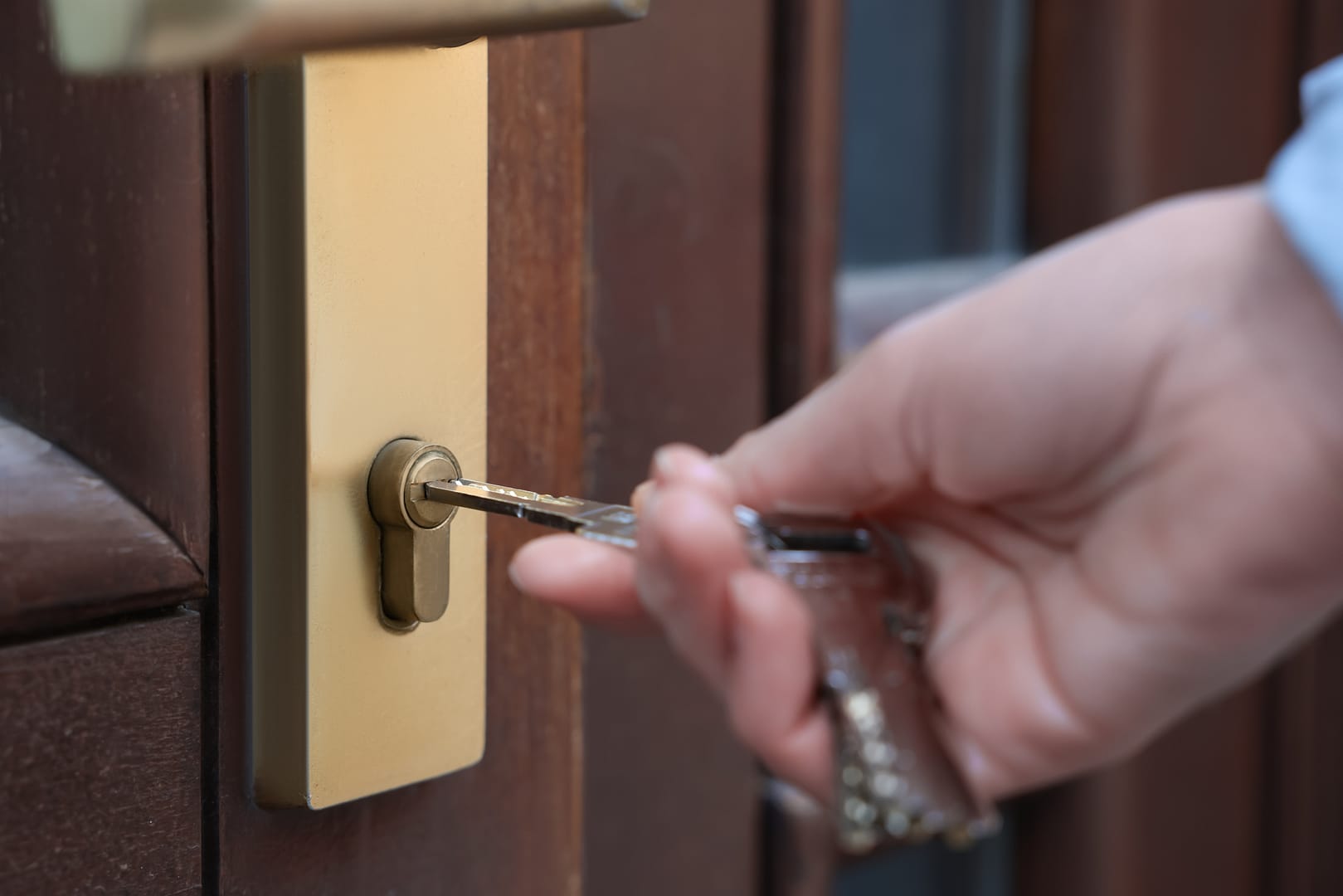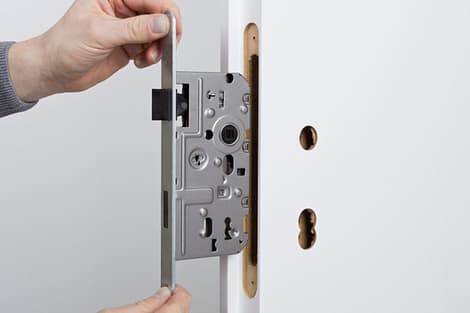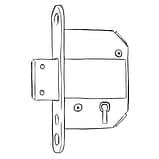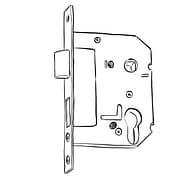

 Mortice deadlocks are the simplest. They only have a keyhole and a locking bolt that goes back and forth.
Mortice deadlocks are the simplest. They only have a keyhole and a locking bolt that goes back and forth.
 A mortice sashlock, on the other hand, features a handle-operated latch mechanism. This means you can open and close the door without having to use the key, but can still lock the door when you leave the building.
A mortice sashlock, on the other hand, features a handle-operated latch mechanism. This means you can open and close the door without having to use the key, but can still lock the door when you leave the building.
 This is the industry’s mark of quality. The Metropolitan Police recommend combining a mortice deadlock with a double-locking night latch, so you have some redundancy when it comes to security. That way, if one device fails, you’ll have another to fall back on. Other police services offer similar advice. Rear and patio doors are often targeted by thieves, as the intruder doesn’t have to try and gain entry in view of the street. These sorts of doors are generally supplied as a single unit that can’t be modified with additional locks. Modern patio doors are far more substantial than those of yesteryear, so if this is a concern, you might want to upgrade your French, sliding, or bi-fold doors.
This is the industry’s mark of quality. The Metropolitan Police recommend combining a mortice deadlock with a double-locking night latch, so you have some redundancy when it comes to security. That way, if one device fails, you’ll have another to fall back on. Other police services offer similar advice. Rear and patio doors are often targeted by thieves, as the intruder doesn’t have to try and gain entry in view of the street. These sorts of doors are generally supplied as a single unit that can’t be modified with additional locks. Modern patio doors are far more substantial than those of yesteryear, so if this is a concern, you might want to upgrade your French, sliding, or bi-fold doors.
